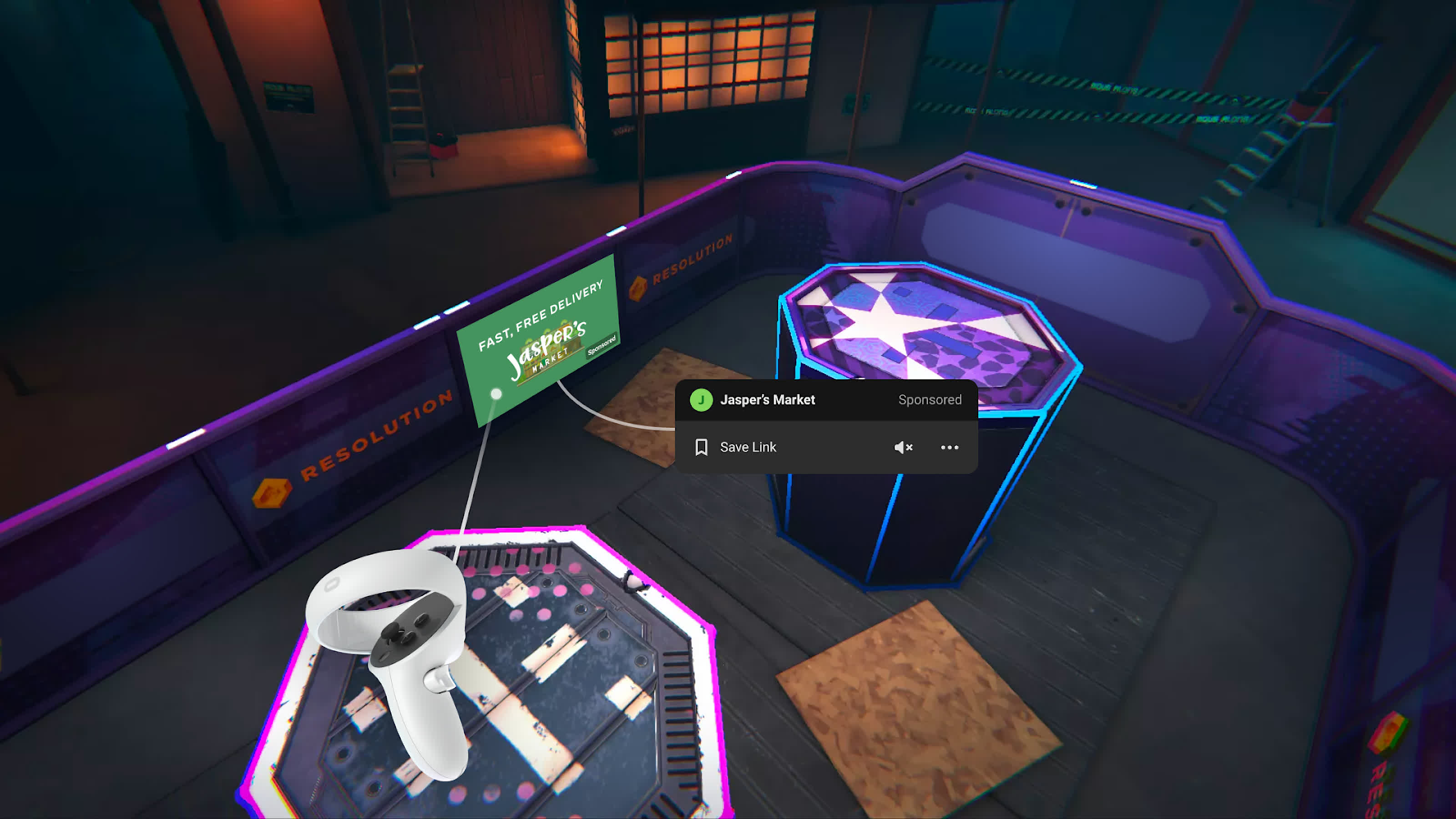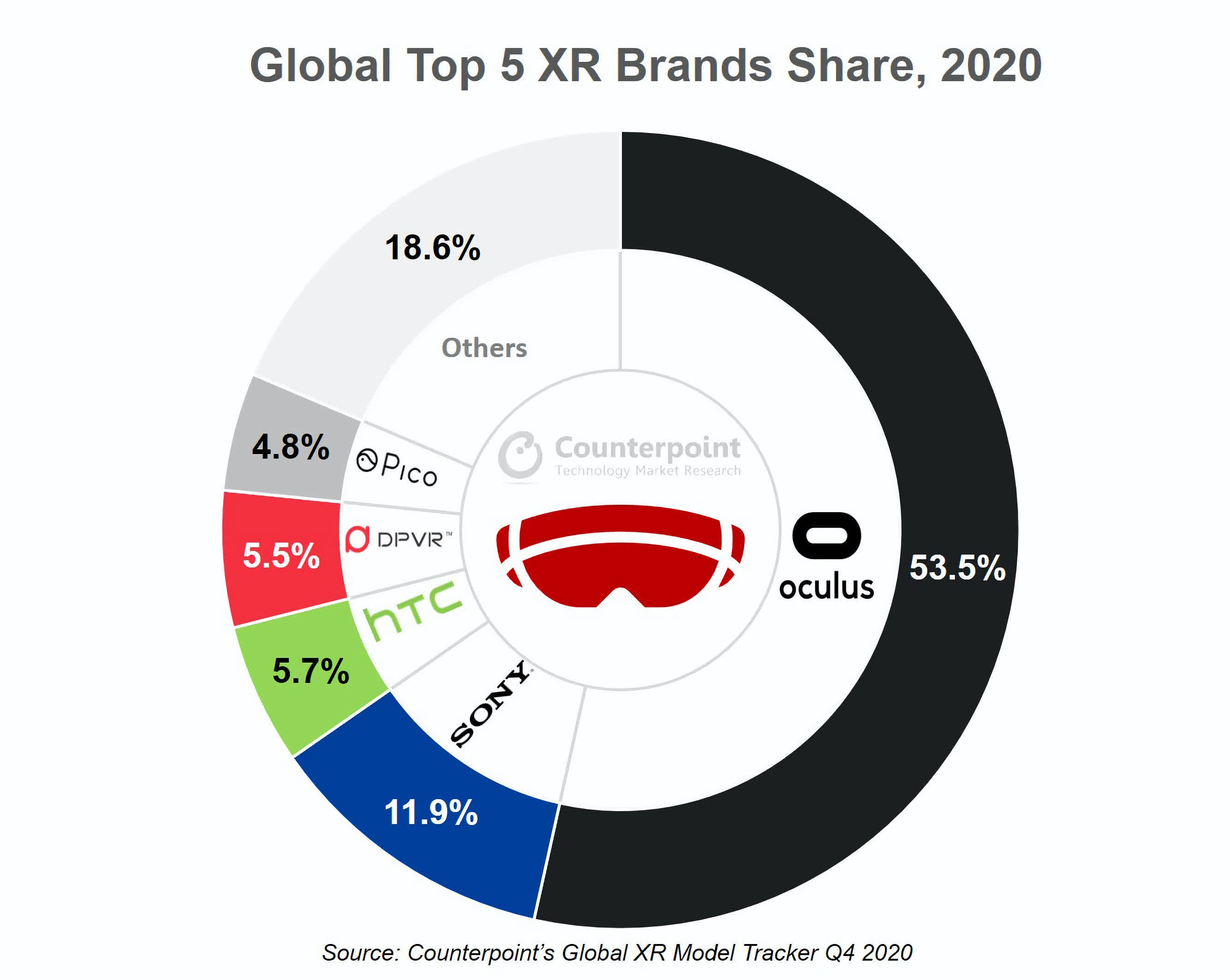The big picture: Facebook made a splash with the relatively affordable Oculus Quest 2 headset, but consumer VR development still needs more pushing before it has any chance to take off in a big way. To that end, the social giant is testing using ads as an alternative revenue stream for developers, while promising not to compromise too much on user privacy.

Facebook announced today it'll soon begin testing ads that are crafted specifically for the VR environment of the Oculus Quest headsets. The company appears to be fast-tracking the changes, as the initial plan revealed a month ago that a pilot program only included running ads inside the Oculus mobile app.
The first ads will appear in a VR shooter game called Blaston from Resolution Games, and they'll also land in two other Oculus apps in the coming weeks. As the company gathers user feedback, it may expand this experiment to more apps and games, as well as make them visible to a broader audience.
Facebook is taking a cautious approach due to the heated debate surrounding online privacy and the failure of social media platforms to protect their users. The company says these ads are meant to offer a new way for developers to generate revenue, while also giving users similar control to what they have on Facebook. It didn't disclose what percentage of revenue will go to developers, so it's not yet clear how advantageous this option will be for those who choose to use it.
If you don't like certain ads, you'll have the ability to hide them or even block all ads from a specific advertiser. At the same time, you'll be able to see why you were shown a particular ad, but Facebook promises these ads won't be based on the data that's stored locally on your Oculus headset. That includes everything from images to sensor data such as captures made for the hand-tracking functionality, and even recordings from the integrated voice assistant.
However, the ads will use certain information that Facebook gathers from your profile, including things like "whether you’ve viewed content, installed, activated, or subscribed to a Oculus app, added an app to your cart or wishlist, if you’ve initiated checkout or purchased an app on the Oculus platform, and lastly, whether you’ve viewed, hovered, saved, or clicked on an ad within a third-party app."

After the success of the $299 Oculus Quest 2, Facebook is getting bolder about its strategy to make VR mainstream using advertisements. There are serious drawbacks to that approach, as the requirement to use a Facebook account in order to play VR games will be a dealbreaker for many people who would prefer to keep the two separate.
HTC already branched out of their consumer VR business to focus on business VR solutions, so Facebook's biggest competition moving forward will be Sony's next PlayStation VR headset.
https://www.techspot.com/news/90101-facebook-testing-vr-ads-oculus-platform.html
